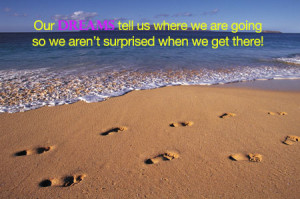
By Cathy Eck
To Believe or Not To Believe
I’ve been writing at Panera Bread and eavesdropping on the conversation at the next table. Three elderly friends have very different beliefs. One is a spiritual seeker. She believes in the positive power of her mind to change her life. She recommends that her friends become more positive. Their gentleman friend is skeptical; he says she’s talking woo woo. He doesn’t really feel he has much control over what happens to him. The other woman says she believes in the power of prayer and is a devout Christian. Each offered clear reasons for their beliefs, largely based on their own experiences and authority figures. They’ve all had proof that their beliefs are right.
Each of them is surprised that the other two don’t jump on their bandwagon; after all they’ve proven that their beliefs are right. Didn’t they? You can see their sadness as they realize that their friends aren’t interested in sharing their beliefs. Not even a little. To each of them, they’re not just sharing beliefs; they are sharing their sacred truth.
This is how it is with beliefs. They aren’t ever true so they lack the infinite power of the truth. Consequently, when we have beliefs, we need the support of others to keep them alive and working; and if they become too important, we will resent those who don’t support our beliefs. When we let our beliefs go and get to the truth, we aren’t bothered by the beliefs of others. We recognize other people’s beliefs are powerless to harm us if we don’t believe them, so we let them believe as they wish.
Our Fondest Beliefs Appear True
If you really believe something, it appears to be true. We all see proof for our strong beliefs. Or sometimes we don’t see proof but hope we will if we get more people to support our beliefs. Religions have aggressively recruited for this reason.
Regardless of how much faith we have in a belief, it is still a just a belief. It is a choice like white bread or wheat. We make way to big of a deal out of beliefs.
To believe or not to believe is really a matter of what we desire from life. A belief becomes obsolete, and even harmful, the minute it gets in the way of our desires or the desires of others. When we hit the limit of our beliefs, it is like hitting a brick wall. We can’t go any further unless we let the beliefs go. But often our pride gets in the way of letting go, or we fear the judgment of others who shared our beliefs in the past.
The friends in Panera Bread displayed a fragile look when the others disagreed with their beliefs because they felt that their friend’s doubt could potentially dilute their own faith in their belief. For many years, I experimented with lots of different systems of belief, and I always felt that fragile feeling. I always looked for agreement or proof to strengthen my case. I did that because I had doubt. Once I realized what I was doing mentally, it seemed stupid.
It was very clear that others weren’t jumping up and down to support my beliefs, and I could see why. They wanted support for their own beliefs. This is why people with strong beliefs seem to be at war with everyone. I had to finally admit that I didn’t like carrying around a toolbox of beliefs or trading one belief for another. I didn’t want to believe; I wanted to not believe so that I could learn what I really knew. I was glad I discovered how to let go. For the first time since childhood, I began to feel free.
What About Jesus and prayer?
The one friend who was Christian pleaded that she had the most support for her way of thinking, and Jesus was her proof. But if you actually look closely at the Bible, Jesus’ prayers were not prayers as we know them. They weren’t pleading requests for help. He even suggested that those who prayed in public didn’t get the point of prayer.
Jesus just knew that whatever he spoke would occur. He said his request once, often in the spirit of gratitude. Jesus could do this because Jesus didn’t have beliefs; he simply had a clear, empty mind that was void of beliefs. This was the mind of the high initiate. It was called a virgin mind, which only required one focused thought to create anything. To get to that level of creating required letting go of every belief. It is about knowing, not believing. We absolutely cannot reach that level of power by faking it until we make it.
Usually people who have faith in prayer had parents who prayed and got results. Those who have faith in affirmations or visualization find it natural to be positive or have vivid imaginations. Beliefs work when they play to our strengths. Beliefs aren’t bad; they just aren’t our greatest point of power.
In the end, beliefs are a choice. What we believe should be the main focus of our life. If we choose beliefs, we should follow them to the letter. We should accept responsibility when our beliefs create problems or limitatiosn. Once we see the limits of our beliefs, we find them much easier to release.
When I lived from beliefs, I thought freedom was about money or time. Now I realized that I held the key to freedom in my own mind. Letting go of my beliefs was my key to freedom. I just had to use it.
Nothing breaks my heart more than seeing someone who is going the right way and the world is telling them they are going the wrong way. This article on Signs of Spiritual Awakening speaks to that problem.
